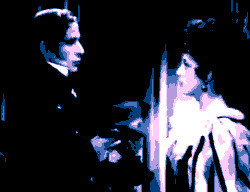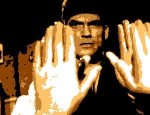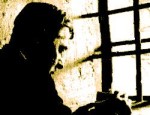Film Review

With his implacable aristocratic bearing, Pierre Blanchar was eminently well suited for the lead role, an ambiguous character with more than a hint of the sadist about him judging by the horrific treatment he metes out to his supposedly beloved wife in the film's final twenty minutes. The coldness of Blanchar's portrayal is exacerbated to a terrifying degree by the warmth and apparent fragility of the film's heroine, played with spellbinding charm by Micheline Presle at her most engaging and photogenic. That there is an intense bond of love between these two characters we do no doubt, but the cruelty that Blanchar inflicts on Presle when her past indiscretions become apparent leaves a decidedly sour after-taste and renders the film's fairytale coda slightly baffling, if not altogether absurd.
A more obvious failing is a somewhat unfocused screenplay which has the narrative hopping backwards and forwards between two time-frames, with too much time spent with a set of uninteresting characters in the rambling framing story trying to piece together a mystery of the past. The film's impressive production values and gripping central performances from Presle and Blanchar overwhelmingly make up for this deficiency, however, and whilst Un seul amour hardly deserves to be considered a classic, it is a singularly unusual and unsettling film for its time. You can't help suspecting that it is meant to be an allegory of some kind...
© James Travers 2016
The above content is owned by frenchfilms.org and must not be copied.
Film Synopsis
In 1860s France, a couple who have recently acquired a dilapidated country house in Vendôme discover within it the secret of a passionate love affair that once took a macabre and deadly turn. It all began fifty years previously, when the wealthy landowner Gérard de Clergue fell madly in love with the beautiful young dancer Clara Biondi. In the course of the ensuing romance, Gérard remains blissfully ignorant of the fact that Clara had a previous lover, James de Poulay. Not long after the couple have married and moved into Gérard's ample country residence, de Poulay shows up with the intention of blackmailing Clara. When her husband returns to the house unexpectedly, Clara forces de Poulay to hide himself in a cupboard. Discomforted by a draught in his living room, Gérard orders his servant to brick up the cupboard immediately, knowing full well that his wife's former lover is on the other side of the door...© James Travers
The above content is owned by frenchfilms.org and must not be copied.
Similar Films
Here are some other films you may enjoy watching:Film Credits
- Director: Pierre Blanchar
- Script: Honoré de Balzac (novel), Bernard Zimmer, Bernard Zimmer (dialogue)
- Photo: Christian Matras
- Music: Arthur Honegger
- Cast: Pierre Blanchar (Gérard de Clergue), Micheline Presle (Clara Biondi), Geneviève Morel (Rosalie, jeune), Henri Coutet (Casimir et Xavier), Georges Douking (Le père Biondi), Jean Périer (Le prince Talleyrand), Maria Fromet (La religieuse), Charlotte Ecard (Amélie, l'habilleuse de Clara), Maurice Schutz (La père du notaire), Edmond Beauchamp (Gardel), Ginette Baudin (Guita Horner), Henri Richard (Le directeur de l'Opéra), Julien Bertheau (James de Poulay), Robert Vattier (Gontran de La Tournelle), Jacques Louvigny (Maître Goze), Roger Karl (Le marquis de La Noue), Gabrielle Fontan (Rosalie, agée), Gaby André (Sophie de La Tournelle), Rivers Cadet (L'hôtelier), René Stern (L'expert)
- Country: France
- Language: French
- Support: Black and White
- Runtime: 101 min
- Aka: Secrets of a Ballerina
The very best fantasy films in French cinema

The best films of Ingmar Bergman

The best French Films of the 1920s
